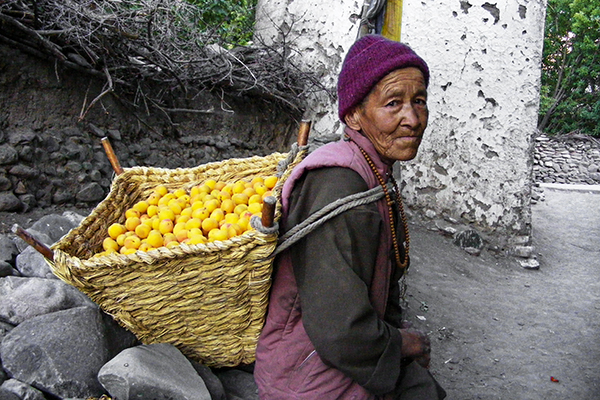COVID-19: An opportunity for localisation

COVID-19 or SARS-CoV-2 is known to have emerged from Wuhan in Hubei province of China in December 2019. Since then, it has become a global health emergency that was declared as a pandemic by the World Health Organisation (WHO) on 11 March, 2020. This new strain of virus is creating havoc worldwide. It has affected almost every sector in some way or the other and has disrupted normal social and economic functioning. The global spread of this infection has restricted international and domestic travel with many countries enforcing a lockdown and mandating social distancing which has impeded the global supply chain of various commodities.
Prior to the outbreak of this pandemic, it was believed that globalisation will lead to development and prosperity. However, the whole scenario has changed now with almost every part of the world under some form of lockdown, which has posed a major challenge to the fulfillment of the demand for various goods and services. This is has shifted focus on the importance of the ‘local’.
The situation was no different in Ladakh when restrictions were placed on the transportation of various supply chains during the crucial period (summer months). I am describing summer months as a ‘crucial period’ for Ladakh as it is the only period when we are open for economic activities. This is difficult in the rest of the year with the onset of winter when the roads to the outside world remain closed for several months each year. Ladakhis stockpile all basic commodities in the summer to last them for the rest of the year.
During the lockdown, vegetables and fruits were nowhere to be seen in Ladakh and there was a shortage of other food items too. This was primarily due to travel and transport restrictions at a time when these commodities are usually brought to Ladakh. Such a situation calls for a return to the days of the past, when Ladakh was a self-sustaining and self-reliant kingdom and dependent on the outside world for very few commodities. However, with gradual improvement in connectivity and the increased impact of globalisation, we became dependent on the outside world for each of our basic necessities and economic development.
The arrival of tourists from 1974 onwards, revolutionised Ladakh’s economy with many preferring to invest in tourism-based businesses instead of traditional agriculture and animal-based livelihoods. In time, the occupational shift became so prominent that people in Ladakh are now completely dependent on the transportation of basic commodities such as vegetables, fruits, and oils from the outside world.
Here I am not saying that we should all move back to traditional agriculture and animal farming when the world is going in a different direction. However, I am trying to highlight the unsustainable dependence we have nurtured to meet even of our basic needs, which we can easily be produced in Ladakh. For instance, a wide variety of vegetables and basic goods like oil, butter, flour, etc can be produced in Ladakh and imports can be reduced as we scale-up local production. Once we have enough production in Ladakh, there will be no need to transport them from outside. At the same time, there would be more employment and people would not need to migrate outside for job opportunities.
Localisation doesn’t mean to necessarily become completely self-reliant. Instead, it refers to a reduction in the distance between producers and consumers and consequent need for unnecessary transportation. This idea of being local has been emphasised by German economist E. F. Schumacher in his book Small is Beautiful (1973) and Swedish filmmaker and author, Helena Norberg-Hodge in her film Economics of Happiness (2012).
Ladakh has the potential to be a self-reliant and self-sufficient Union Territory wherein we will not need to unnecessarily transport basic goods from outside as they can be grown and produced in the region. This includes vegetables and fruits as well as education facilities and job opportunities. There are many advantages to being local and consuming locally-produced goods. It ensures a quality assurance for products as one can trace its origins easily. Perishable vegetables and fruits will be safer to consume with less chemical content and preservatives, which in turn will help boost our immunity to withstand various infections.
We already have numerous goods being produced locally with several entrepreneurs making new innovations. For instance, the current increased demand in facemasks and hand-sanitisers has led to many volunteers producing these locally in Ladakh. These are small acts of being local. Localisation also has a number of positive environmental impacts. The reduction in unnecessary transportation will lead to a major reduction in the carbon footprint of each commodity, help conserve natural resources, reduce environmental pollution, ensure food security and mitigate climate change. In addition, it will create new job opportunities, reduce economic conflicts and increase contentment amongst local communities.
In my opinion, we must consider the COVID-19 pandemic as a wakeup call from nature. It signifies that it is time for us to give back to nature what we have been taking from it till now. It is not the last pandemic and global disaster that we will have to overcome. Hence, it is essential that we learn our lessons so that we are able to overcome these challenges when we face them again. Moreover, each disaster has a lesson it, which serves as an opportunity to make changes for the future. I feel it is the right time to reboot the system, build local capacity, and promote local production to create a more resilient society with a localised economy.
By Thinles Chondol
Thinles Chondol is currently working as a Young Professional at the National Institute of Disaster Management (NIDM), Ministry of Home Affairs, Government of India
